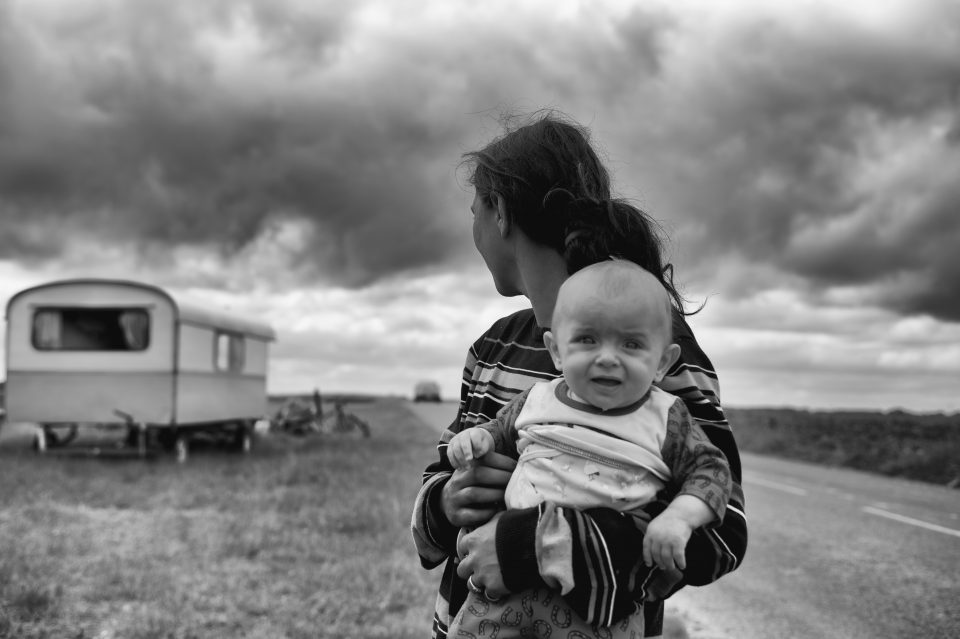A report published recently by the charities Birth Companions and Birthrights highlights the need for a more proactive, integrated approach to addressing the maternity care needs of women experiencing multiple disadvantages during pregnancy and early motherhood.
Through in-depth interviews with women and professionals, the research found that, in almost every case, problems with housing acted as a major barrier to women’s legal rights to safe, appropriate and dignified maternity care. The resulting report – ‘Holding it all together: Understanding how far the human rights of women facing disadvantage are respected during pregnancy, birth and postnatal care’ – explores these and a range of other rights issues experienced by the most disadvantaged women, relating to choice and consent, experiences of trauma and abuse, asylum and immigration, the value of continuity of care and specialist midwifery services, and the difficulty of navigating multiple health and social care systems.
Almost all of the women who took part in the research experienced pregnancy and early motherhood while living in temporary, insecure or unsuitable accommodation. Housing was cited as a central problem in their lives, causing and exacerbating mental health problems and jeopardising their access to care. Several participants were in housing designated as ‘temporary’ but had been there for months, or in some cases years. Others were moved during pregnancy or shortly after birth, disrupting relationships with maternity and broader support services, which can vary significantly between local areas.
Midwives talked of women having to stay on postnatal wards after they would normally have been discharged because they didn’t have housing arranged, or having to attend the housing office while still physically and emotionally vulnerable post-birth. Other professionals spoke of supporting women who had left violent relationships, only to see them re-housed in units where domestic violence was a frequent occurrence.
Speaking ahead of the launch of ‘Holding it all together’, Naomi Delap, Director of Birth Companions, commented:
“This report shines a vital spotlight on many of the ways in which disadvantaged women experience poorer care and support during pregnancy and early motherhood, with significant impact on outcomes for them and their babies. But it also shows the positive impact of efforts already underway to improve things for these women through the ongoing Maternity Transformation Programme, and the new NHS long term plan. Women told us continuity of carer and more specialist service provision makes a real difference. Yet amidst all this encouraging work, the experiences shared in the research show us that the housing needs of these women and their babies seem to be largely overlooked, with direct consequences for their care.”
Amy Gibbs, Chief Executive of Birthrights, said:
“Housing directly impacts on maternity care, jeopardising women’s fundamental rights to safety and dignity during pregnancy and childbirth. In our research, women in temporary or transient housing struggled to access the proven benefits of continuity of carer or services based on long-term therapeutic relationships. We heard about women in unstable or inappropriate accommodation who did not have a place where they felt safe to be during early labour, or confident returning to with their newborn during the highly vulnerable postnatal period. This is a blindspot that requires urgent action across the entirety of the health, care and social support system. Human rights law demands every woman has equal access to safe, appropriate maternity care that protects her human dignity.”
The charities are calling for greater attention to be given to housing issues in the context of maternity care, taking advantage of the NHS Long Term Plan’s commitment to greater integration between local services. This should include:
- Integrated Care Systems need to ensure housing and other local authority services are fully embedded in their services, including active engagement of housing in the community hubs being rolled out under the Maternity Transformation Programme, Better Births.
- Housing, social care and health services should work more closely together when women facing severe and multiple disadvantage are relocated during pregnancy or in the postnatal period, to ensure smooth transfers of care.
- Local authorities should consider:
> how housing allocation policies and prioritisation decisions reflect the needs and rights of pregnant women and their babies, including bereaved and traumatised women who do not have their babies in their care at the end of their pregnancy.
> providing a single point of contact to professionals supporting pregnant women facing severe and multiple disadvantage.
> DOWNLOAD THE EXECUTIVE SUMMARY
For enquiries about the research or the issues relating to severe and multiple disadvantage in pregnancy and early motherhood, please contact Kirsty Kitchen, Head of Policy and Communications at Birth Companions, at [email protected]
The research carried out to produce this report was funded by Trust for London, an independent charitable foundation who aim to tackle poverty and inequality in London by funding independent research by voluntary and charity groups.
Birth Companions is the UK’s leading voice on the needs and experiences of
pregnant women and new mothers facing severe and multiple disadvantage. They offer
practical and emotional support to women before, during and after their baby’s birth
in prisons across England and in the community in London. Birth Companions think much more can be done to improve care for pregnant women and new mothers who experience
multiple disadvantage, so they commission research and develop policy to make services
better during this crucial time.
Birthrights is the UK’s only organisation dedicated to improving women’s experience
of pregnancy and childbirth by promoting respect for human rights. Birthrights believe that
all women are entitled to respectful maternity care that protects their fundamental
rights to dignity, autonomy, privacy and equality. Birthrights provide advice and legal
information to women, train healthcare professionals to deliver rights-respecting care
and campaign to change maternity policy and systems.



